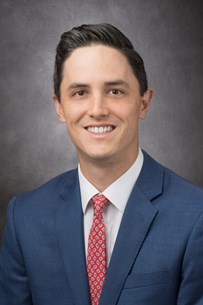Meeting
2020 ASCO Virtual Scientific Program

The University of Texas MD Anderson Cancer Center, Houston, TX
Ryan Huey , Goldy George , Penny Phillips , Revenda White , Siqing Fu , Filip Janku , Daniel D. Karp , Aung Naing , Sarina Anne Piha-Paul , Vivek Subbiah , Apostolia Maria Tsimberidou , Shubham Pant , Timothy A Yap , Jordi Rodon Ahnert , Funda Meric-Bernstam , Ya-Chen T. Shih , David S. Hong
Background: Clinical trials are an important therapeutic option for cancer patients (pts). Although financial burden in cancer treatment is well-documented, the financial burden associated with clinical trials is not well understood, especially for pts with lower income. Methods: We conducted a survey regarding economic burden and financial toxicity in cancer pts who had been on Phase I clinical trials for ≥1 month. Financial Toxicity Score (FTS) was assessed using the validated COmprehensive Score for Financial Toxicity (COST) survey (scale 0-44, lower scores indicate worse toxicity). Pts also reported monthly out-of-pocket (OOP) medical and non-medical expenses. We applied multivariable logistic regression to analyze risk of financial toxicity, and unanticipated expenses. Results: Early-phase clinical trial pts (N = 213, median age = 59y; 59% female; 74% White, 45% w/ annual income ≤$60K; 50% lived > 300 miles from the clinic; 40% required air travel; 37% had Medicare, 54% had employer sponsored insurance) had a median FTS of 20, with interquartile range of 12. Median monthly OOP costs for non-medical expenses was $1075, and for medical expenses was $475. Median total monthly OOP costs was $1750. 55% and 64% of pts reported that actual medical and non-medical expenses were higher than expected, respectively. Worse financial toxicity (≤ median FTS) in pts was associated with yearly household income < $60K (OR: 2.7, P = 0.008), having medical costs higher than expected (OR: 3.2, P = 0.024), participation on ≥1 Phase I clinical trial prior to their current trial (OR: 2.2, P = 0.028), and living > 100 miles away from the clinical trials hospital (OR: 2.3, P = 0.043). However, 34% of pts who lived > 100 miles away received partial/full reimbursement of clinical trial-related travel costs from study sponsor/other/insurance. Racial/ethnic minority (OR: 2.6, P = 0.008) and pts who were unemployed or not working outside the home (OR: 2.4, P = 0.023) were more likely to report that actual medical costs were much higher than expected. 53% of pts used savings and 18% retirement accounts to pay for treatment. Conclusions: Among cancer pts participating on clinical trials, economic burden is high, and most of pts’ OOP costs were on non-medical expenses. Financial toxicity is disproportionally higher in pts with lower income. OOP costs can be substantial and are often unexpected for pts. Furthermore, prior participation in ≥1 Phase I clinical trial and living far away from the clinical trials hospital seem to increase risk of financial toxicity.
Disclaimer
This material on this page is ©2024 American Society of Clinical Oncology, all rights reserved. Licensing available upon request. For more information, please contact licensing@asco.org
2020 ASCO Virtual Scientific Program
Poster Session
Health Services Research and Quality Improvement
Quality Care/Health Services Research
Value/Cost of Care
J Clin Oncol 38: 2020 (suppl; abstr 7082)
10.1200/JCO.2020.38.15_suppl.7082
7082
354
Abstract Disclosures
2023 ASCO Annual Meeting
First Author: Giusti Raffaele
2023 ASCO Quality Care Symposium
First Author: Pooja Karukonda
2019 ASCO Quality Care Symposium
First Author: Ryan Huey
2019 ASCO Quality Care Symposium
First Author: Ryan Huey